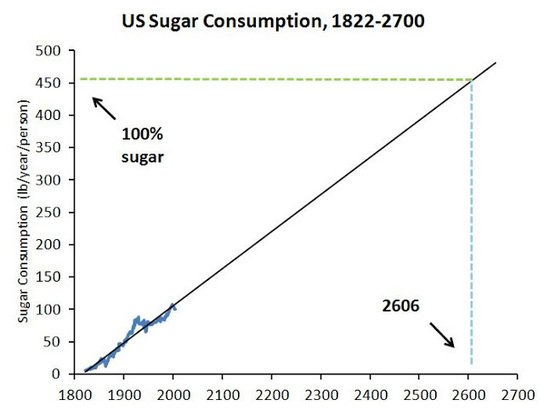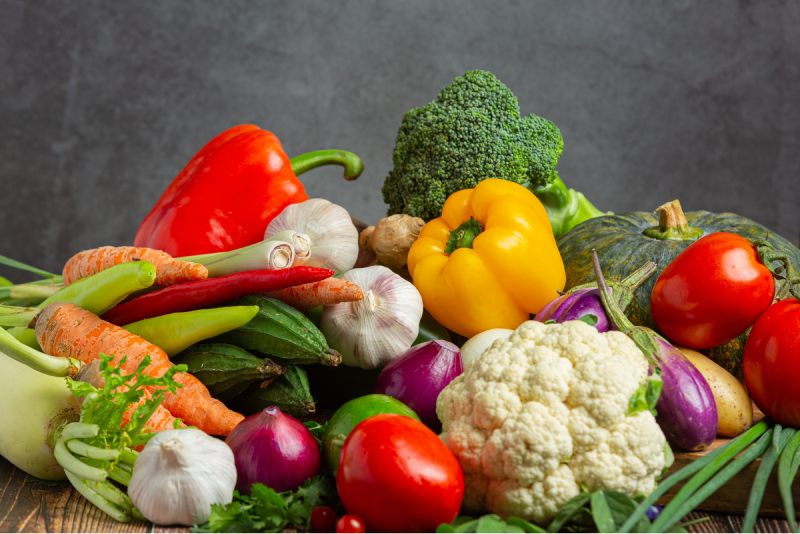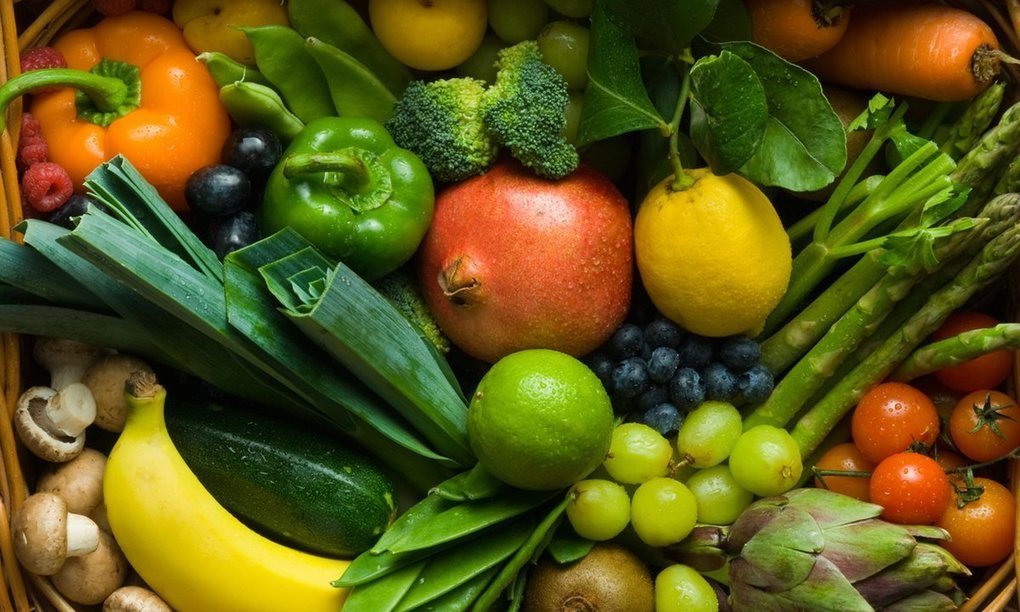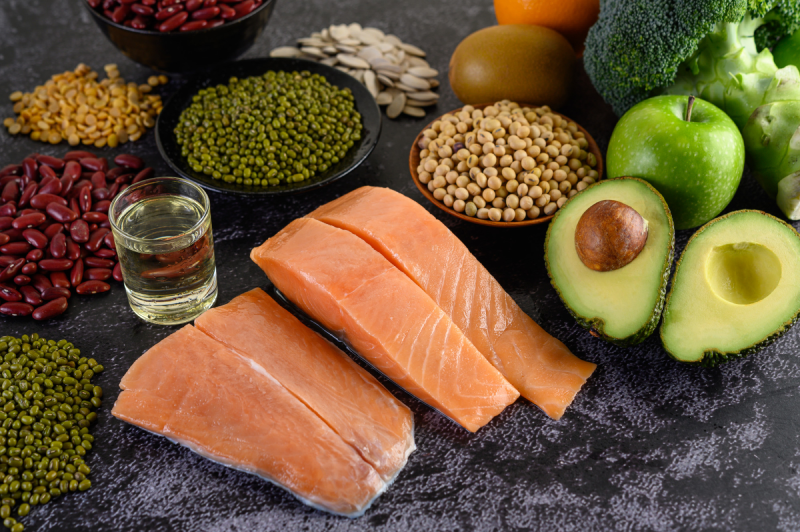The US diet has changed dramatically in the last 200 years. Many of these changes stem from a single factor: the industrialization and commercialization of the American food system. We’ve outsourced most of our food preparation, placing it into the hands of professionals whose interests aren’t always well aligned with ours.
Read the full article at: wholehealthsource.blogspot.com
There are two types of sugars in American diet : naturally occurring sugars (Fructose, lactose) and added sugars (sweeteners, white sugar, brown sugar, honey, corn syrup). The major sources of added sugars in American diets are regular soft drinks, sugars, candy, cakes, cookies, pies and fruit drinks. As the following graphic shows, the US diet will be 100 percent sugar by 2606 if current trends continue. Although the American Heart Association recommends women consume no more than six teaspoons of added sugar per day (or about 100 calories), most of us take in double that. A high-sugar diet boosts your odds of tooth decay, heart disease, and diabetes, not to mention weight gain. Slash your sugar intake now with the help your DietSensor scanner! DietSensor is THE app, to help americans to cut down on added sugars, saturated fats and salt if they want to eat a diet that can improve their health. The guidelines of DietSensor emphasize the adoption of a healthy eating pattern that fits into a person’s lifestyle, rather than recommending specific amounts of different foods, such as vegetables or meats. These patterns can be tailored to an individual’s personal preferences, enabling Americans to choose the diet that is right for them.




